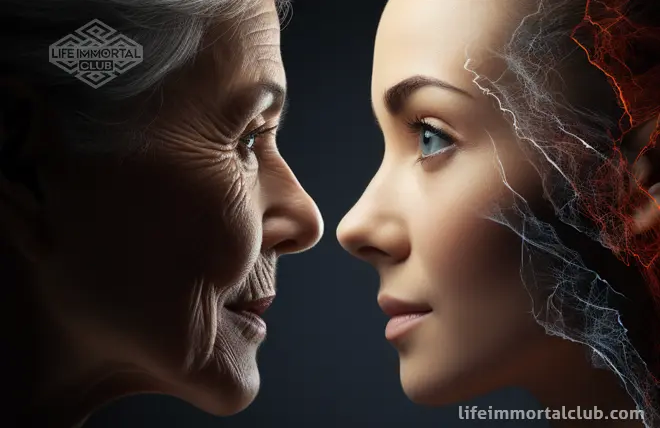How to Prevent or Reverse Graying of Hair

What Causes Gray Hair and How to Reverse Gray Hair?
Honestly, when you look at some people who have aged enough to start showing grays, it actually looks fantastic! Suits them completely, complements their underlying skin tone and makes their eyes pop! But...
What if you are on the opposite scale of this phenomenon? What if the gray you are starting to see actually doesn't complement you at all? You look sallow, washed out. It has this weird tone to it, and you really hate the effect it has on people's perception of you? It ends up AGEING your appearence in a way you just don't like.
This article is for the people that want to learn to fight this process. Again -- nothing wrong with natural aging and going gray, and to those who's graying results are favorable to them, well great for you lucky King or Queen. Go on and be that silver fox; rock your silver mane!
For anyone struggling with their feelings about their grays, wishing they could reverse time and get their color back, keep on reading for some expert tips and helpful advice.
But First - More Information On Gray Hair & The Cause.
Gray hair, a natural part of the aging process, occurs when the pigment-producing cells in our hair follicles called melanocytes start to decline in activity. This decline can be attributed to various factors, including genetics, oxidative stress, and stem cell dysfunction.
While it is challenging to reverse gray hair completely, there are steps that can be taken to slow down its progression and potentially restore some color. Genetics play a significant role in determining when and how quickly an individual's hair turns gray.
If your parents or grandparents experienced premature graying, you may be predisposed to developing gray hair at an earlier age. However, even without a genetic predisposition, other factors can contribute to the premature graying of hair.
As we age, our stem cells gradually lose their regenerative abilities and diminish in number within the follicles responsible for housing melanocytes.
While complete reversal of gray hair may not be possible currently without resorting to artificial coloring methods like dyes or pigments; adopting a holistic approach by addressing the genetic, oxidative stress, and stem cell factors can potentially slow down the graying process and promote healthier hair.
In the following sections, we will explore various methods to tackle these different causes and shed light on emerging scientific breakthroughs that offer hope for those seeking to prevent or reverse gray hair.
Can We Reverse Gray Hair?
Many individuals wonder if it is possible to reverse the graying process and restore their hair to its original color. And it looks like the jury is still out on the final verdict, as new and exciting options to fight graying come to light.
While turning gray is often considered an inevitable part of the aging process, recent research suggests that there may be potential ways to slow down or even reverse the graying of hair. One approach that has shown promise in reversing gray hair is using Velvet Bean, also known as Mucuna pruriens.
This tropical legume contains high levels of L-DOPA, a precursor to dopamine, which may help stimulate melanocytes - the cells responsible for producing pigment in our hair. By increasing the activity of melanocytes, it is believed that Velvet Bean could potentially restore color to graying strands.
Another avenue being explored is the use of stem cell therapy. Stem cells are undifferentiated cells capable of self-renewal and can develop into various specialized cell types.
Researchers are investigating whether introducing healthy stem cells into the scalp could rejuvenate dormant or dysfunctional melanocyte stem cells, promoting new hair growth with restored pigmentation. Additionally, several studies have indicated a correlation between oxidative stress and premature graying of hair.
Oxidative stress occurs when there is an imbalance between free radicals and antioxidants in our bodies. To counteract this imbalance and potentially slow down or reverse gray hair, some experts recommend increasing antioxidant intake through diet or supplements.
Antioxidants such as vitamins A, C, E, and minerals like copper and zinc play vital roles in protecting against oxidative damage and maintaining healthy pigmentation. While these approaches show promise for reversing gray hair on a conceptual level, it's important to note that more research is needed before definitive conclusions can be made.
It's crucial to consult with a healthcare professional before trying any alternative therapies or supplements. Although reversing gray hair entirely may not yet be possible with current scientific understanding, ongoing research suggests several potential avenues for slowing down or partially restoring color to graying hair.
Exploring natural substances like Velvet Bean, investigating the role of stem cell therapy, and understanding the impact of oxidative stress on pigment production are all areas that hold promise for addressing this aesthetic concern. However, it is essential to approach such interventions with caution and seek professional guidance to ensure safety and effectiveness.
Treating Gray Hair
Treating Gray Hair One of the most common approaches to treating gray hair is through the use of hair dyes or colorants.
These products work by depositing pigments onto the hair shaft, effectively covering up the graying strands. Hair dye options are widely available, ranging from temporary rinses to semi-permanent and permanent colorants.
Temporary options tend to wash out over time, while semi-permanent dyes gradually fade with each shampoo. For longer-lasting coverage, permanent hair dyes are often recommended.
In addition to specific remedies like the Velvet Bean previously mentioned, maintaining overall scalp health is essential when treating gray hair. Regular scalp massages can promote blood circulation and stimulate the follicles, which may support healthy pigmentation of the hair strands.
Massaging your scalp with natural oils like coconut oil or almond oil can provide added nourishment and hydration, promoting healthier-looking locks. Ultimately, treating gray hair requires a tailored approach that suits individual preferences and circumstances.
While conventional methods like using commercial dyes offer immediate results, exploring natural alternatives such as Velvet Bean or practicing scalp massages provides potential long-term solutions for reversing or preventing further graying of hair. It's important to consult with a trichologist or healthcare professional before incorporating any new treatments into your routine to ensure they suit your specific needs and do not interact negatively with any existing conditions or medications you may be taking.
Deeper Into the Causes of Gray Hair: More About Oxidative Stress
As we delve into the intriguing realm of graying hair, it is essential to explore one of the primary causes: oxidative stress. Oxidative stress occurs when there is an imbalance between the production of free radicals and the body's ability to neutralize them with antioxidants. This imbalance leads to cellular damage, including that of melanocytes, which are responsible for producing pigment in our hair follicles.
The process begins with the accumulation of hydrogen peroxide in the hair shaft. Normally, an enzyme called catalase breaks down hydrogen peroxide into water and oxygen.
However, as we age, our bodies produce less catalase, resulting in a buildup of hydrogen peroxide. This excess hydrogen peroxide interferes with melanin production and disrupts the natural pigmentation process.
To counteract oxidative stress and its impact on graying hair, several approaches can be taken. One such method involves incorporating antioxidant-rich foods into your diet.
These include fruits such as blueberries and pomegranates, vegetables like spinach and kale, as well as nuts and seeds known for their high antioxidant content. Additionally, supplements containing potent antioxidants can be beneficial in reducing oxidative stress levels.
By understanding how oxidative stress contributes to graying hair and implementing strategies to counteract it through diet or supplementation with antioxidants like Mucuna Puriens, we can potentially slow down or even reverse this natural process. However, it is essential to bear in mind that individual results may vary based on various factors such as genetics and overall health status.
Another Cause of Gray Hair: Stem Cell Dysfunction
As we delve deeper into the causes of gray hair, one significant factor that cannot be overlooked is stem cell dysfunction. Stem cells in the hair follicles are responsible for producing new pigment cells called melanocytes, which provide color to our hair strands. However, with age, these stem cells gradually decline in function and activity, leading to a reduced production of melanocytes and ultimately resulting in gray hair.
Stem cell dysfunction can be influenced by various factors such as genetic predisposition, environmental stressors, hormonal changes, and oxidative stress. Genetic factors play a crucial role in determining the rate at which stem cells decline and the onset of gray hair.
Additionally, environmental stressors like pollution or exposure to harmful chemicals can accelerate stem cell dysfunction. By incorporating the previously mentioned Velvet Bean into your diet or through supplementation under professional guidance, you may potentially support healthy stem cell function and mitigate premature graying. It is important to note that while addressing stem cell dysfunction may help slow down or prevent further graying of hair caused by this factor, reversing existing gray hair entirely may not be possible without interventions like dyeing or coloring techniques.
Stem cell activation alone may not instantly restore pigmentation to gray hairs already grown out from the scalp. Nonetheless, managing the underlying cause of graying through supporting healthy stem cell function can contribute to maintaining overall scalp health and promoting stronger hair growth.
Consume Sufficient Amounts of Minerals that Are Important for Healthy Hair
One crucial aspect of maintaining healthy hair and potentially preventing or reversing graying is ensuring that you consume sufficient amounts of minerals that are essential for hair health. Minerals such as copper, zinc, iron, and selenium play vital roles in maintaining the pigmentation and overall health of your hair.
Copper is particularly important for the production of melanin, the pigment responsible for giving your hair its natural color. A deficiency in copper can result in premature graying.
Including foods rich in copper in your diet can help combat this deficiency. Shellfish, organ meats like liver, nuts and seeds (especially sesame seeds), legumes like lentils, and dark leafy greens are excellent sources of copper.
Zinc is another mineral that plays a significant role in hair health. It aids in the production of melanin and helps to maintain healthy scalp conditions.
Deficiencies in zinc have been linked to premature graying. Foods high in zinc include oysters, beef, lamb, pumpkin seeds, spinach, and mushrooms.
Iron deficiency has also been linked to gray hair since it affects proper oxygenation to the hair follicles. Consuming iron-rich foods can help combat this issue.
Some excellent sources of iron include red meat such as beef or lamb liver; shellfish like clams or oysters; leafy green vegetables like spinach or kale; legumes such as lentils or chickpeas; and fortified cereals. Selenium is an essential mineral known for its antioxidant properties that help protect cells from damage caused by free radicals.
It also plays a role in maintaining healthy hair pigmentation. Foods rich in selenium include Brazil nuts (which are among the most concentrated dietary sources), fish (such as tuna or salmon), eggs, whole grains (such as wheat germ), sunflower seeds, and broccoli.
By incorporating these mineral-rich foods into your diet on a regular basis while ensuring you meet your daily recommended intake levels according to age and gender guidelines, you can support the health and color of your hair. However, it is important to consult with a healthcare professional or a registered dietitian before making any significant dietary changes or starting any new supplements to ensure they are appropriate for your individual needs.
Take your vitamins
One of the key components in maintaining healthy hair and potentially preventing or reversing graying is ensuring that you are consuming sufficient amounts of essential vitamins. Vitamins play a crucial role in promoting hair health and can help combat the effects of premature graying.
Here are some vitamins that are particularly beneficial:
- Vitamin B12: This vitamin is essential for the production of red blood cells, which nourish the hair follicles. A deficiency in vitamin B12 can lead to weak and brittle hair, as well as premature graying. Incorporating foods rich in vitamin B12, such as fish, meat, eggs, and dairy products into your diet can help prevent or slow down the graying process.
- Vitamin E: Known for its antioxidant properties, vitamin E helps protect the cells from oxidative stress caused by free radicals. It aids in improving blood circulation to the scalp, promoting healthy hair growth and preventing premature graying. Including foods like nuts (such as almonds), seeds (like sunflower seeds), spinach, and avocado in your diet can provide an ample supply of this vital vitamin.
- Vitamin C: As another powerful antioxidant, vitamin C helps fight against oxidative stress and promotes collagen synthesis. Collagen strengthens the hair shafts and prevents them from becoming weak or damaged, which can contribute to premature graying. Citrus fruits like oranges and lemons are excellent sources of vitamin C along with strawberries, kiwis, bell peppers, and broccoli.
Incorporating these vitamins into your daily diet through food sources or supplements may help optimize your hair health and potentially prevent or slow down the graying process. However, it is essential to consult with a healthcare professional before starting any new supplements to ensure they are suitable for your specific needs and health condition.
Melatonin
Melatonin: Melatonin, often associated with regulating sleep patterns, has also shown promising effects in preventing or reversing graying of hair. This hormone is naturally produced by the pineal gland in the brain and plays a vital role in various physiological processes.
Research studies have found a close connection between melatonin levels and hair pigmentation, suggesting that melatonin may play a significant role in preventing gray hair. One study conducted on animals demonstrated that melatonin supplementation could delay the onset of gray hair significantly.
Additionally, it was found that administering melatonin to aging mice led to the restoration of their original hair color. These findings suggest that melatonin might have potential as a natural remedy for gray hair reversal in humans as well.
Ashwagandha
Ashwagandha, also known as Withania somnifera, is an ancient herb commonly used in Ayurvedic medicine. It has gained popularity in recent years for its potential to treat various health conditions, including graying hair. Ashwagandha is considered an adaptogenic herb, meaning it helps the body adapt to stress and promotes overall well-being.
In terms of preventing or reversing graying hair, this herb offers several benefits. One of the major causes of gray hair is oxidative stress, which occurs when there is an imbalance between free radicals and antioxidants in the body.
Ashwagandha has powerful antioxidant properties that can help combat oxidative stress and reduce cellular damage. Its active compounds like withanolides and flavonoids scavenge harmful free radicals, protecting the cells from damage and potentially preventing premature graying.
Additionally, ashwagandha may support healthy hair pigmentation by promoting melanin synthesis. Melanin is the pigment responsible for giving color to our hair follicles.
Studies have shown that ashwagandha can stimulate melanocyte activity and increase melanin production. This can help restore natural hair color or slow down the progression of graying hair.
Furthermore, ashwagandha may have a positive impact on hormone levels within the body. Hormonal imbalances can contribute to premature graying of hair.
Ashwagandha has been found to regulate cortisol levels (the stress hormone) and balance thyroid hormones. By reducing chronic stress and maintaining a healthy hormonal balance, ashwagandha may indirectly aid in preventing or reversing gray hair caused by such imbalances.
While ashwagandha shows promise as a natural remedy for gray hair prevention or reversal, it is important to note that individual results may vary. It is recommended to consult with a healthcare professional before incorporating any new supplement into your routine, especially if you have underlying medical conditions or are taking other medications.
Ashwagandha is available in various forms, such as capsules, powders, or tinctures. It can be consumed orally or applied topically as an oil or extract.
As with any herbal remedy, it is advisable to start with a lower dosage and gradually increase as tolerated. Ashwagandha offers potential benefits in preventing or reversing graying hair due to its antioxidant properties and ability to support melanin synthesis.
However, further research is needed to fully understand its mechanisms of action and efficacy in this regard. As part of a holistic approach to hair health, incorporating ashwagandha into your lifestyle may be worth considering, along with other healthy habits like consuming a balanced diet, managing stress levels, and adopting good hair care practices.
Do Not Smoke
Smoking has long been associated with numerous health risks, including cancer and cardiovascular diseases. However, many people are unaware that smoking can also contribute to premature graying of hair.
The harmful chemicals found in cigarettes can damage the DNA and cells responsible for producing pigment in the hair follicles. These chemicals not only accelerate the graying process but also lead to a dull and lifeless appearance of the hair.
One of the main culprits in cigarette smoke that affects hair color is hydrogen cyanide. This toxic compound reduces the production of melanin, which is responsible for giving color to our hair, skin, and eyes.
Furthermore, smoking increases oxidative stress in the body, disrupting the balance between free radicals and antioxidants. This imbalance further damages the cells responsible for pigmentation and accelerates gray hair formation.
To prevent or reverse graying caused by smoking, quitting this harmful habit is essential. By quitting smoking, individuals can reduce their exposure to harmful chemicals such as hydrogen cyanide and provide a healthier environment for their hair follicles to function optimally.
Additionally, quitting smoking improves overall blood circulation and oxygen supply to cells throughout the body, including those involved in hair growth and pigmentation. Moreover, incorporating certain natural remedies into your routine can help combat graying caused by smoking or other factors.
Smoking not only poses severe health risks but can also contribute to premature graying of hair due to its detrimental effects on cellular function and DNA damage within the hair follicles. Quitting smoking is crucial if one wishes to prevent or reverse gray hair.
Avoid Too Much Alcohol Consumption
Excessive alcohol consumption is not only detrimental to overall health but can also contribute to premature graying of hair. Alcohol consumption has been linked to oxidative stress, a major cause of gray hair.
When the body metabolizes alcohol, it produces harmful by-products called free radicals, which can damage the cells responsible for producing hair pigment. Additionally, alcohol can deplete important nutrients in the body that are necessary for maintaining healthy hair, such as vitamins B12 and folate.
One of the key ways that alcohol contributes to graying hair is through its impact on the production of melanin. Melanin is the pigment responsible for giving color to our hair and skin.
Excessive drinking can disrupt melanin production, leading to a loss of color in the hair follicles. Moreover, alcohol weakens and damages hair follicles over time, making them more susceptible to graying.
To avoid or reverse premature graying caused by excessive alcohol consumption, reducing or eliminating alcohol intake is highly recommended. By limiting or cutting out alcoholic beverages altogether, individuals give their bodies a chance to recover from oxidative stress and regain balance in melanin production.
Instead of turning to alcoholic drinks for relaxation or socializing, one could explore healthier alternatives like herbal teas or natural fruit juices. Incorporating certain herbs and supplements into one's diet may also help counteract the effects of excessive alcohol consumption on graying hair.
Alcohol can lead to oxidative stress, disrupt melanin production, and weaken hair follicles, all of which contribute to the graying process. By cutting back on alcohol intake or eliminating it altogether, individuals can give their bodies a chance to recover and promote healthier hair pigmentation.
Reduce Stress, Especially Chronic Stress
Chronic stress is one of the leading factors that can contribute to premature graying of hair. When we experience prolonged periods of stress, our bodies release excessive amounts of cortisol, a hormone that can have detrimental effects on various bodily functions, including hair health.
High levels of cortisol can disrupt the normal functioning of hair follicles and inhibit the production of melanin, which is responsible for giving our hair its color. To effectively reduce stress and prevent or reverse graying hair, it is essential to implement relaxation techniques into your daily routine.
One effective method is practicing mindfulness meditation or deep breathing exercises. These techniques help calm the mind and relax the body, reducing overall stress levels.
Additionally, incorporating regular exercise into your routine can also be beneficial in managing stress. Exercise releases endorphins and promotes better blood circulation, which can improve scalp health and stimulate hair growth.
Another natural remedy to combat chronic stress and potentially reverse gray hair is by incorporating adaptogenic herbs into your diet. Adaptogens are herbal substances that help the body adapt to stressors more effectively.
In addition to these techniques, it is crucial to identify and address the root causes of chronic stress in one's life. This may involve making changes in lifestyle habits or seeking professional help through therapy or counseling if necessary.
By actively managing chronic stress levels and adopting healthy coping mechanisms, individuals may notice a positive impact on their overall well-being as well as potential improvements in their hair condition. Please note: While reducing chronic stress may have potential benefits for preventing or reversing graying hair caused by external factors such as oxidative damage or nutritional deficiencies, it may not be effective for reversing gray hair caused by genetic factors or age-related changes in melanin production.
Watch Out For Specific Drugs
Some medications have been associated with premature graying or accelerated graying of hair.
It is crucial to be aware of the potential effects that certain drugs can have on your hair color. One such drug is chemotherapy, which is known to cause hair loss and can often lead to the regrowth of gray or white hair.
This is due to the aggressive nature of chemotherapy on rapidly dividing cells, including those responsible for producing pigmentation in the hair follicles. 2. In addition to chemotherapy, certain antidepressant medications have also been linked to gray hair.
Selective serotonin reuptake inhibitors (SSRIs) are commonly prescribed for depression and anxiety disorders. However, long-term use of these drugs has been associated with premature graying in some individuals.
The exact mechanism by which SSRIs affect hair pigmentation is not fully understood, but it is believed that they may disrupt melanin production or induce oxidative stress within the hair follicles. 3. Another class of medications known as corticosteroids should also be approached with caution if you are concerned about graying hair.
These drugs are often prescribed for a variety of conditions, including autoimmune disorders and asthma. Chronic use of corticosteroids can interfere with normal melanocyte function, leading to changes in pigmentation and potentially contributing to premature graying over time.
It's important to note that while these drugs may have an impact on the coloration of your hair, not everyone who takes them will experience this side effect. If you are concerned about how a specific medication might affect your hair color, it's best to consult with your healthcare provider or a dermatologist who can provide personalized guidance based on your individual circumstances.
Use More Science-Based Products
In the quest to prevent or reverse graying of hair, using scientifically-backed products can be a valuable tool. While there is no shortage of products on the market claiming to reverse gray hair, it's important to focus on those that have been tested and proven effective.
When looking for science-based products containing Mucuna Puriens or other beneficial ingredients, it's essential to consider their delivery system. Topical applications such as serums or shampoos are popular choices as they can directly target the scalp and hair follicles.
Look for products that have undergone clinical studies or have received positive feedback from users who have experienced noticeable improvements in their hair color. In addition to Mucuna Puriens, there are other science-based ingredients worth exploring in the fight against graying hair.
For example, certain peptides and antioxidants have shown promising results in stimulating melanin production and combating oxidative stress – a common culprit behind premature graying. Keeping abreast of new research developments and seeking out products formulated with these cutting-edge ingredients can enhance your chances of achieving desired results.
While using science-based products may offer hope in preventing or reversing graying hair, it's important to approach this approach with realistic expectations. Results can vary depending on individual factors such as genetics and overall health.
It's always advisable to consult with a dermatologist or trichologist before incorporating new products into your hair care routine. They can provide guidance tailored to your specific needs and help you make informed choices regarding the most suitable science-based products for promoting healthy hair pigmentation.
By staying updated on the latest research and seeking professional advice, you can ensure that the products you choose are effective and suited to your individual needs. Remember that finding the right regimen may require some trial and error, so be patient in your journey towards maintaining vibrant and youthful-looking hair.
Pseudocatalase Cream
Pseudocatalase Cream One of the promising treatments for reversing gray hair is the use of pseudocatalase cream.
Pseudocatalase is an enzyme that works by breaking down hydrogen peroxide, which is believed to be a major contributor to hair graying. This cream contains a form of pseudocatalase that can be applied topically to the hair and scalp.
When hydrogen peroxide accumulates in hair follicles, it can bleach the melanin pigment responsible for hair color, leading to gray or white strands. The use of pseudocatalase cream aims to restore the balance of hydrogen peroxide in the hair follicles and promote the natural production of melanin.
To apply pseudocatalase cream, start by washing your hair and scalp thoroughly with a gentle shampoo. Gently towel dry your hair until it is damp but not dripping wet.
Take a small amount of pseudocatalase cream and massage it into your scalp using circular motions. Make sure to distribute it evenly throughout your scalp and massage gently for better absorption.
There have been studies showing positive results with the use of pseudocatalase cream in reversing gray hair. However, individual results may vary, and it's important to note that this treatment may take time before any noticeable changes occur.
It's recommended to use pseudocatalase cream as directed by a healthcare professional or follow the instructions provided by the manufacturer. In addition to using pseudocatalase cream, some individuals have reported better results when combining its application with other natural remedies such as Velvet Bean (Mucuna Pruriens).
However, it is crucial to consult with a healthcare professional before incorporating any new supplements or herbal remedies into your routine. Remember, while pseudocatalase cream and complementary natural remedies might show promising results, it's essential to approach hair graying with realistic expectations.
Reversing gray hair is a complex process that can vary greatly from person to person. It's always advisable to consult a qualified healthcare professional who can guide you in determining the most suitable and effective treatment options for your specific situation.
Platelet-Rich Plasma (PRP)
Platelet-rich plasma (PRP) has gained significant attention in recent years as a potential treatment for gray hair. PRP is a concentrated solution containing a higher number of platelets obtained from the patient's own blood. Platelets are rich in growth factors and other proteins that have shown promise in promoting hair growth and improving hair health.
While the primary focus of PRP is typically on hair restoration, some researchers believe it may also have the ability to reverse or prevent graying of hair. One study conducted on mice evaluated the potential of PRP in reversing gray hair.
Researchers injected PRP into the dorsal skin of the mice and observed remarkable results. The treated areas showed increased melanin production, resulting in darkening of the previously gray hairs.
These findings suggest that PRP may have a stimulating effect on melanocytes, which are responsible for producing pigment in our hair follicles. Another approach involving PRP is combining it with other substances known for their beneficial effects on graying hair.
For instance, the now infamous Velvet Bean, that herb we mentioned a few times, has been found to stimulate melanogenesis – the process by which melanin pigments are produced – thereby potentially aiding in reversing gray hairs. Some experts recommend using PRP alongside Velvet Bean extract topically or even incorporating it into the PRP solution itself before administration to enhance its effectiveness.
It's important to note that while there is promising research surrounding PRP as a potential treatment for graying hair, more studies are needed to fully understand its efficacy and safety profile. Additionally, individual results may vary based on various factors such as age, underlying health conditions, and genetic predisposition to premature graying.
Consulting with a qualified healthcare professional who specializes in treating hair disorders can provide personalized guidance on whether or not PRP may be a suitable option to consider for combating gray hair concerns. Platelet-rich plasma (PRP) has emerged as a potential treatment for graying hair.
Studies suggest that PRP may have the ability to stimulate melanocyte activity and promote hair pigmentation, leading to the reversal of gray hairs. Combining PRP with other substances like Velvet Bean extract may further enhance its effectiveness.
However, further research is needed to establish its long-term efficacy and safety. Consulting a professional specializing in hair disorders is essential to determine if PRP is a suitable option for addressing gray hair concerns.
Do Not Damage Your Hair
One crucial aspect of preventing or reversing graying hair is to avoid damaging your hair.
Hair damage can accelerate the graying process and make it more difficult to maintain healthy, vibrant hair. Here are some tips to help you protect your hair from unnecessary damage:
- Avoid excessive heat styling: Exposing your hair to high temperatures from blow dryers, curling irons, and straighteners can cause significant damage over time. The heat strips away moisture from the strands, making them more prone to breakage and weakening the pigmentation of the hair follicles. If you must use heat styling tools, make sure to apply a heat protectant spray or serum beforehand and keep the temperature on a moderate setting.
- Be gentle when brushing: Aggressive brushing or using a brush with stiff bristles can lead to breakage and weaken the overall structure of your hair. Instead, opt for a wide-toothed comb or a brush with soft bristles which will help detangle without causing unnecessary damage.
- Avoid harsh chemical treatments: Chemical processes such as perming, relaxing, or excessive dyeing can strip away the natural oils in your scalp and weaken the integrity of your hair shafts.These treatments also introduce harmful chemicals that may cause oxidative stress on your strands, potentially accelerating graying. Consider embracing natural alternatives for coloring like henna or herbal dyes that are gentler on your locks.
By adopting these measures and being mindful of how you treat your hair, you can minimize damage and promote healthier strands that are less likely to gray prematurely. Remember that maintaining healthy habits is essential throughout this process in order to achieve long-lasting results.
With proper care and attention, it is possible to slow down or even reverse premature graying while keeping your locks lustrous and vibrant.
While it has been traditionally used in various cultures, more research is needed to establish its efficacy in preventing or reversing gray hair. It's always advisable to consult with a healthcare professional or trichologist before using any new herbal supplements or remedies.
Finally, Can Gray Hair Turn Back into Colored Hair?
While the prospect of restoring gray hair to its former pigmented glory may sound enticing, it is important to approach the subject with realistic expectations. Can gray hair turn back into colored hair? The short answer is that while it may not be possible to completely reverse the graying process, there are certain treatments and remedies that may help restore some degree of color to your silver strands.
There are case reports of people that reversed gray hair, getting their original hair color back.
For example, neurologists reported that a woman who received Mucuna pruriens extract turned white hair black again in some parts of her hair (R).
It's important to approach these methods with a realistic mindset, understanding that results may vary and that further research is needed to fully grasp their efficacy. Embracing the natural aging process and celebrating the beauty of our unique hair colors, whether gray or colored, can also be a powerful way to embrace self-acceptance and confidence.
Conclusion
While the graying of hair is a natural and inevitable part of the aging process, there are several steps that can be taken to prevent or even reverse this phenomenon. By understanding the causes of gray hair, such as oxidative stress and stem cell dysfunction, individuals can make informed choices regarding their lifestyle and dietary habits to promote hair health. Consuming sufficient minerals and vitamins that are essential for healthy hair, such as iron, copper, zinc, vitamin B12, and vitamin E, can provide the necessary nutrients to maintain vibrant and pigmented locks.
Gray hair can be seen as a beautiful testament to our experiences and wisdom gained over time. So let us appreciate the journey we are on while taking steps to care for our hair, so it stays healthy and vibrant.







